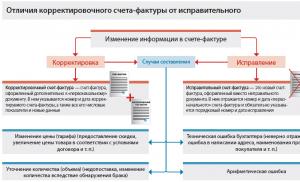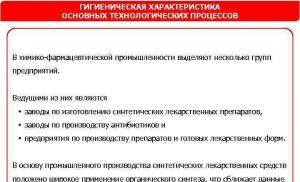Polite people from Voentorg. General Director of Voentorg: There will be no pearl barley on the buffet Vobla, lard and chewing gum: who and how mastered the military food market with a turnover of $1.9 billion
© "Russian Forbes", 12/13/2012
Vobla, lard and chewing gum: who and how mastered the military food market with a turnover of $1.9 billion
Ilya ZhegulevOn Thursday, two State Duma deputies - Alexander Khinshtein and Andrei Lugovoi announced their resignation as acting. the head of Voentorg, Marina Lopatina. “Lopatina was relieved of her post on the initiative of Shoigu (Sergei Shoigu, Minister of Defense - Forbes),” - Khinshtein wrote on his Twitter. “Hello to Khinshtein,” Maxim Suprun, deputy director of Voentorg, responded in a conversation with Forbes. “He collects gossip from corners.” Lopatina’s reception did not confirm her dismissal: according to the secretary, she was holding a meeting. And only very late in the evening the agencies reported that the board of directors of Voentorg OJSC had elected a new general director of the company - Vladimir Pavlov.
The story began on Tuesday, when the same Lugovoi, deputy chairman of the Duma Security Committee, proposed to investigate the activities of the state-owned Voentorg OJSC, which provides food to military personnel Russian army. According to him, “Voentorg is taking away 50 billion rubles and dividing contracts for the next two years.” “This undermines combat effectiveness,” Lugovoi said, recalling recent corruption scandals surrounding the Defense Ministry.
The ministry, which until recently was headed Anatoly Serdyukov, is indeed the main supplier of “corruption” news in the last two months. According to the facts fraud in the sale of real estate, land plots and shares owned by OJSC Oboronservis(the main service enterprise of the Ministry of Defense), seven criminal cases have already been opened, the damage in these cases exceeded 6.7 billion rubles. In addition to Serdyukov, several other high-ranking officials lost their posts in the Ministry of Defense.
Unlike the Oboronservis case, the history of Voentorg includes the name of the Deputy Minister of Defense, who remained in the department under Sergei Shoigu. This is the chief of logistics of the Russian Armed Forces Dmitry Bulgakov.
Lugovoy's statement may become the subject of an investigation into that unit of the Ministry of Defense that has so far been spared corruption scandals - the Logistics Service. The deputy's request was addressed to the head of the Investigative Committee, Alexander Bastrykin, and the department is formally obliged to conduct an inspection.
How are the Russian military fed and who makes money from it?
Packed rations in dry figures
The food system for military personnel began to change in 2008, when Bulgakov headed the Logistics Service. First, the cost of dry rations, which are issued to military personnel in the field, began to rise. From 321 rubles per set (2008), the cost has increased to 622 rubles this year. The number of rations also increased - threefold to 10.2 million sets (although the troops experienced a reduction during that period).The editors have at their disposal documents that reveal interesting schemes that surprise not only with prices, but also with the diet of military personnel.
Last year it changed a little. In a standard set of dry rations from bread, canned food, processed cheese and chocolate, dried fish, salted bacon and chewing gum were added, which caused surprise among market participants who were not ready to meet the new requirements.
“In the summer, dried fish can cause thirst, chewing gum can hardly be useful for nutrition, and the introduction of lard into the mandatory diet can cause protest from two faiths at once - Muslims and Jews,” says one of the former ration suppliers.
Since 2009, all suppliers have been thrown out of the “pool,” he says, leaving only the Gryazinsky Food Plant.
“It was Bulgakov who introduced changes to the regulatory documentation for the diet so that no one except the Gryazinsky Plant could comply with the standard,” says a representative of the company that previously participated in the competitions.
The plant’s financiers, the interlocutor claims, were involved as experts in the pricing department of the Ministry of Defense. In addition to the Gryazinsky Plant, there was another supplier - the Agroprom company. They entered into an agency agreement with their daughter OJSC Leningradskoye, which in turn entered into an agreement for the supply of rations with the same Gryazinsky Food Plant.
In 2010, a violation of the principle of competition during the competition was discovered, and Serdyukov gave orders to find at least one real alternative. Sergei, a representative of one of the supplying companies, says that they called the company and asked if they could produce and supply roach and lard.
We eventually found an alternative: this is the wholesale food supplier “Opt-torg”. Now they share a budget for rations of 6.3 billion rubles with the Gryazinsky Food Plant. The general director of the plant, Valery Kovalevich, was unable to answer Forbes’ questions, since he “went to the administration” for the whole day on Thursday.
How reasonable are ration prices? They differ significantly even from retail prices in stores. If we compare it with the monitoring of average prices in Russia, then, for example, buckwheat in rations is 198% more expensive, pasta - by 172%, juice - by 107%, pork - by 24%.
Already in the spring of 2012, it became clear that it would not be possible to use up the tripled volume of rations in 11 months. In order to somehow resolve the issue of rotting food, Defense Ministry officials ordered dozens of units to remove military personnel from canteen allowances and replace food with rations, which were no longer issued during exercises, but directly in the barracks. On June 1, the head of the Department of Resource Support of the Ministry of Defense Tolmachev wrote about this to the head of the food service of the Western Military District (the document is available to Forbes). The editors also have at their disposal a telegram signed by the acting deputy commander of the Central Military District for logistics, Andrei Bulyga, who calls for the immediate implementation of instructions for the destruction of perishable products. Bulyga got rid of the acting prefix. already under the new Minister of Defense Sergei Shoigu on December 6.
What's hot?
However, dry rations are only a small part of a large pie called “organizing nutrition for military personnel.” The main share is hot meals. Until 2010, hot meals were prepared by the soldiers themselves: those who served remember the outfits in the kitchen.However, under the new minister and chief of logistics, the Ministry of Defense decided to switch to outsourcing. “The diversion of personnel from combat training activities has been eliminated, the quality of food has improved, the range of prepared dishes has been expanded, and the culture of eating has improved; energy value, chemical composition and the completeness of the food ration standard consistently meets regulatory requirements,” Deputy Minister Bulgakov stated then.
Now the weighted average cost of a one-time food service, determined by the budget, is 267.75 rubles. If you multiply by the number of days in a year and the number of military personnel (about half a million), you get a market with an annual volume of 50.3 billion.
Until this year, catering was provided by 25-30 different companies in different parts Russia. They supplied food to military units based on a competition. Small companies owned 7% of the market, 51% was provided by RBE group - the largest operator in the outsourcing market: from construction and IT to food and recreation. Another 42% was provided by the Concord company.
Orders for food distribution are distributed through the service JSC Voentorg of the Ministry of Defense.
In August of this year, most of the small companies stopped paying their bills. In the middle of last month, the owners of the SPP Trading House, Standard Service and Central Catering companies turned to the new Minister of Defense with a request to restore order to the army outsourcing market.
The reason for the complaints was that the acting General Director of Voentorg Marina Lopatina decided to terminate contracts with small outsourcers, redistributing their volumes in favor of Concord. They suspect Lopatina of lobbying the interests of the company owner.
["Izvestia", 12/10/2012, "The Minister of Defense approved Serdyukov's soldier's menu": The head of one of the companies that lost the contract laid all the blame for the problems with canteens on Voentorg, which, according to him, underpaid money to catering enterprises and created small companies find it difficult to operate.
- When you do not receive all the money, but only part of it, it is very difficult to pay the staff or food suppliers. Because of this, of course, we had problems. Apparently, this was part of the strategy to squeeze us out of this market,” noted Izvestia’s interlocutor on condition of anonymity.
General Director of Central Catering Yuri Bazdyrev confirmed that Voentorn owed him about 20 million rubles. After the unexpected termination of the contract by Voentorg, he had to close the company and fire about 2.5 thousand employees. At the same time, Voentorg has still not repaid its debt to the company.
“Voentorg does not refuse to pay, but since April of this year it has only transferred advance payments in the amount of 60% of the total amount,” Bazdyrev said.
In a letter to the Minister of Defense, the entrepreneurs reported that in total Voentorg owed 12 food enterprises about 4 billion rubles.
The press service of the RBE group, which controlled about 51% of soldiers’ canteens in 2012, told Izvestia that Voentorg was also unjustifiably terminating contracts with the enterprises of their group. However, they declined to comment further.
- The contract period for 2013 and 2014 ends in 20 days, if the contracts with us are not re-signed during this time, we will be left behind. Therefore, now, while something can still be corrected, we are trying to draw the maximum attention of the military leadership to this situation,” the head of one of the companies explained to Izvestia.
The Ministry of Defense promises to sort out the situation by the end of December.
- The minister’s instruction has been received; a response will be sent to the applicants by the end of December. But it will not be very comforting for them. By law, we cannot interfere in the activities of our counterparty, Voentorg. He himself decides who to entrust the preparation of food in 2 thousand soldiers' canteens - at least one company, at least several. We only control the quality of the dishes,” a representative of the military department explained to Izvestia.
The logistics service of the Ministry of Defense explained to Izvestia that they do not interfere in the affairs of Voentorg.
- A special commission, which includes officers and doctors, monitors the storage of food and compliance with production standards before breakfast. We don't care about the rest. “Voentorg” answers to us,” said Izvestia’s interlocutor. - Insert K.ru]
The Concord company belongs to a St. Petersburg entrepreneur Evgeniy Prigozhin. He has been credited with acquaintance with Vladimir Putin since the early 90s, when Putin at the mayor’s office oversaw the gambling industry, and Prigozhin and his partners opened the first large casinos. Since then, the entrepreneur has become a restaurateur, and not an ordinary one. Putin visited his restaurants New Island, Russian Fishing and Na Zdorovye more than once, and also treated high-ranking guests, including Jacques Chirac, George Bush, Gerhard Schröder and Yoshiro Mori.
In 2012, the Concord Management Consulting holding won a competition to provide services for the reception in honor of Putin’s inauguration for his third term.
Last year, Concord became known for a large-scale project to provide schools in two metropolitan areas with ready-to-eat lunches. Food deliveries did not take place on time and on September 15, parents went out to protest in Moscow. According to a Concord representative, work has since been established and the company has been uninterruptedly providing the Northern and South-Eastern districts of Moscow with food.
Concord began feeding military units five years ago. The company managed to reduce the cost of food from 350 to 240 rubles per serving, a company representative said. The company left the question of when Prigozhin met Putin and what their relationship was like. “The Concord company does not set itself the task of capturing the entire military food market - this information is globally exaggerated in the media,” says Concord’s official response to Forbes. - The company feeds the part of the market entrusted to it by the Ministry of Defense. The choice of supplier depends only on the Voentorg company, which tenders for the supply of food to military units.”
The Ministry of Defense refused to comment on the situation with Voentorg. On Thursday, at a press conference on the disposal of shells, Dmitry Bulgakov did not answer the question about nutrition, saying that this was not the topic of the meeting. Original of this material
© "Novaya Gazeta", 08.11.2012, The defeat of Voentorg
Voentorg OJSC, established by the Ministry of Defense, is being prepared for liquidation by selling off 1,500 stores and transferring assets for food supply and bath and laundry services to the army to Evgeniy Prigozhin’s company Concord-Catering
Irek MurtazinThere was a grandiose goal, supported by a well-thought-out plan and scrupulous calculations: on the basis of 1,300 stores and warehouses subordinate to the Ministry of Defense, to create a retail company comparable, or even superior, both in the number of retail facilities and in turnover to such brands as X5 Retail Group or Magnit. After carrying out preparatory work and rebranding for 2-3 years, this company could even be brought to IPO. With the denationalization of the trading network, the state, represented by the Ministry of Defense, could earn, according to the most minimal estimates, at least one billion dollars.
The idea was supported by Dmitry Bulgakov, who at the end of December 2008 was appointed Deputy Minister of Defense, chief logistics officer of the Ministry of Defense.
And it was precisely to realize this ambitious task that in 2009, four friends went to work at the newly founded Voentorg OJSC. They were not new to business. Having received a good education at the Red Banner Military Institute, we worked for a decade and a half in large business structures, all of whom already had experience in top management positions. Gennady Poznyak went to Yekaterinburg, receiving an appointment to the post of general director of the trade department of the Volga-Ural Military District. Mikhail Sokol headed the trade department of the Leningrad Military District in St. Petersburg. Maxim Malakhovsky - Baltic Fleet trade department in Kaliningrad, Dmitry Miroshnichenko - Volga region trade department in Samara. These departments were created as structural divisions of Voentorg OJSC, which in turn was established on April 30, 2009 by order of the Russian Minister of Defense No. 312.
The friends had foreseen everything, they had calculated everything. Except for one thing. Human factor. And what kind! The fact that she was appointed general director of Voentorg OJSC Ekaterina Priezzheva, who since June 2007 worked as an adviser to the Minister of Defense of the Russian Federation on the social block and since April 2009 began to combine the positions of adviser to the minister and general director of Voentorg.
Priezzhaeva moved to the Ministry of Defense together with Serdyukov from the Federal tax service, where she headed the department of taxes and duties on alcohol and tobacco products. She also moved to Moscow following Serdyukov. In 2007. From St. Petersburg, where she headed interdistrict tax inspectorate No. 1 for several years. Priezzhaeva always only controlled and checked, and was not burdened with experience in managing business structures, much less experience in creating business projects. It is possible that this is why she had other views on the real estate of the Ministry of Defense, transferred to Voentorg OJSC. The idea of creating a retail company was buried. The task was set: to simply sell off all real estate, all objects. At the same time, we were talking about very attractive assets. Large department stores, cafes, shopping centers in big cities.
The heads of trade departments, who went to work at Voentorg OJSC, hoped to implement the idea of creating a large retail chain, and had already begun work on detailing the project, tried to torpedo Priezzhaeva’s initiative and slow down the sale of real estate. For example, Maxim Malakhovsky in Kaliningrad “on the sly,” without informing Moscow (which in principle he should not have done), leased a number of attractive properties for three years. Lease agreements for shops and cafes were concluded at market prices and officially registered, the premises were transferred according to acceptance certificates.
Malakhovsky’s “counter-initiative” infuriated the leadership of Voentorg. It was necessary to initiate appeals from the military prosecutor's office to the Arbitration Court. Almost all lease agreements were declared invalid. The court recognized the transactions as large ones, and therefore subject to approval by the board of directors of OJSC Baltic Fleet Trade Administration. And Malakhovsky made decisions on the transfer of objects for rent alone.
It’s clear that Maxim Malakhovsky “didn’t work out well” and quit. Just like his friends and colleagues in Yekaterinburg and St. Petersburg, Gennady Poznyak and Maxim Sokol.
The only one who agreed to “play” by the new rules was the head of the Samara department, Dmitry Miroshnichenko. Which almost got me burned. When on February 8 of this year, when, according to the press service of the Ministry of Internal Affairs, operatives of the Department of Economic Security and Anti-Corruption of the Ministry of Internal Affairs of Russia detained retired colonel of the Moscow Criminal Investigation Department Alexander Ambarov red-handed while receiving 18 million rubles. Ambarov did not deny it, told everything he knew, agreed to cooperate and, under the control of the security forces, handed over part of the bribe Ekaterina Smetanina, General Director of Legal Support Center “Expert” LLC, which was involved in the sale of real estate of the Ministry of Defense.
According to investigators, for a kickback of 18 million rubles, Smetanina and her accomplices undertook to ensure the sale of four stores for 147 million rubles, with real market value- at least 200 million. All four stores were located in Samara. And their “pre-sale preparation” was carried out by the trade department of the Volga region, headed by Dmitry Miroshnichenko. In order to sell the stores, they even had to terminate the lease agreements concluded at the beginning of 2003.
Miroshnichenko was a witness in the February case of Smetanina and Co. This criminal case fell apart and was closed. But on November 1, the Khamovnichesky District Court of Moscow authorized the arrest of Ekaterina Smetanina and her husband Maxim Zakutaylo in a new criminal case. Again related to the sale of Department of Defense real estate. The security forces intend to revive the February case of the sale of a store in Samara.
A person close to the Deputy Minister of Defense, Chief of Logistics of the Russian Armed Forces, Army General Dmitry Bulgakov told me about how the business project of creating a large retail company on the basis of the Voentorg OJSC trading network was born and buried. He spoke into a tape recorder, without hiding his name. But on Thursday he called and asked that his name not be used. And he explained:
After Serdyukov’s resignation, Voentorg started operating almost around the clock. Documents are being cleaned up, asset withdrawal transactions are being accelerated, and advance payments are being made for work performed under outsourcing agreements. They are trying to get there before Shoigu gets into the swing of things and appoints audits. We are talking about hundreds of millions of rubles, if not billions. Nothing is sacred to them. And they have plenty of very influential patrons who could make my life hell. Don't want.
I had to double-check the information received from other sources.
New details have also emerged. It turned out that Ekaterina Priezzheva very quickly realized that the position of general director of Voentorg OJSC was too troublesome. She quickly moved to head the department of military education, but at the same time retained her membership on the board of directors of the OJSC. She also left her man there - Leonid Teif, who also moved to Moscow from the banks of the Neva. Teif is an experienced entrepreneur and took the position of deputy director of Voentorg OJSC. And he has already sat through the shifts of several managers, in fact completely controlling the joint-stock company.
Leonid Teyf's most serious asset is his trusting relationship with Yevgeny Prigozhin, the owner of the Concord-Catering company, a man rumored to be a Kremlin chef and friend of Vladimir Putin.
It was Teyf who provided Prigozhin’s company with the first outsourcing contracts to provide food to army units. Prigozhin, who already had experience organizing catering for school institutions (details in Novaya, October 17, 2011), liked his first army experience. And now the work of transferring to Prigozhin all the assets of Voentorg OJSC, involved in ensuring food supplies and bath and laundry services for the army, has reached the final stage. And these are stable contracts, estimated at 140 billion rubles per year.
That is why Voentorg OJSC is not very worried about Serdyukov’s resignation and inspections of the security forces. They still have an equally serious patron.
There was a grandiose goal, supported by a well-thought-out plan and scrupulous calculations: on the basis of 1,300 stores and warehouses subordinate to the Ministry of Defense, to create a retail company comparable, or even superior, both in the number of retail facilities and in turnover to such brands as X5 Retail Group or Magnit. After carrying out preparatory work and rebranding for 2-3 years, this company could even be brought to IPO. With the denationalization of the trading network, the state, represented by the Ministry of Defense, could earn, according to the most minimal estimates, at least one billion dollars.
The idea was supported by Dmitry Bulgakov, who at the end of December 2008 was appointed Deputy Minister of Defense, chief logistics officer of the Ministry of Defense.
And it was precisely to realize this ambitious task that in 2009, four friends went to work at the newly founded Voentorg OJSC. They were not new to business. Having received a good education at the Red Banner Military Institute, they worked for a decade and a half in large business structures, all of whom already had experience in top management positions. Gennady Poznyak went to Yekaterinburg, having been appointed to the position of general director of the trade department of the Volga-Ural Military District. Mikhail Sokol headed the trade department of the Leningrad Military District in St. Petersburg. Maxim Malakhovsky - Baltic Fleet trade department in Kaliningrad, Dmitry Miroshnichenko - Volga region trade department in Samara. These departments were created as structural divisions of Voentorg OJSC, which in turn was established on April 30, 2009 by order of the Russian Minister of Defense No. 312.
The friends had foreseen everything, they had calculated everything. Except for one thing. Human factor. And what kind! The fact that Ekaterina Priezzheva was appointed general director of Voentorg OJSC, who since June 2007 worked as an adviser to the Minister of Defense of the Russian Federation on the social block and since April 2009 began to combine the positions of adviser to the minister and general director of Voentorg.
Priezzhaeva moved to the Ministry of Defense together with Serdyukov from the Federal Tax Service, where she headed the department of taxes and duties on alcohol and tobacco products. She also moved to Moscow following Serdyukov. In 2007. From St. Petersburg, where she headed interdistrict tax inspectorate No. 1 for several years. Priezzhaeva always only controlled and checked, and was not burdened with experience in managing business structures, much less experience in creating business projects. It is possible that this is why she had other views on the real estate of the Ministry of Defense, transferred to Voentorg OJSC. The idea of creating a retail company was buried. The task was set: to simply sell off all real estate, all objects. At the same time, we were talking about very attractive assets. Large department stores, cafes, shopping centers in big cities.
The heads of trade departments, who went to work at Voentorg OJSC, hoped to implement the idea of creating a large retail chain, and had already begun work on detailing the project, tried to torpedo Priezzhaeva’s initiative and slow down the sale of real estate. For example, Maxim Malakhovsky in Kaliningrad “on the sly,” without informing Moscow (which in principle he should not have done), leased a number of attractive properties for three years. Lease agreements for shops and cafes were concluded at market prices and officially registered, the premises were transferred according to acceptance certificates.
Malakhovsky’s “counter-initiative” infuriated the leadership of Voentorg. It was necessary to initiate appeals from the military prosecutor's office to the Arbitration Court. Almost all lease agreements were declared invalid. The court recognized the transactions as large ones, and therefore subject to approval by the board of directors of OJSC Baltic Fleet Trade Administration. And Malakhovsky made decisions on the transfer of objects for rent alone.
It’s clear that Maxim Malakhovsky “didn’t work out well” and quit. Just like his friends and colleagues in Yekaterinburg and St. Petersburg, Gennady Poznyak and Maxim Sokol.
The only one who agreed to “play” by the new rules was the head of the Samara department, Dmitry Miroshnichenko. Which almost got me burned. When on February 8 of this year, when, according to the press service of the Ministry of Internal Affairs, operatives of the Department of Economic Security and Anti-Corruption of the Ministry of Internal Affairs of Russia detained retired colonel of the Moscow Criminal Investigation Department Alexander Ambarov red-handed while receiving 18 million rubles. Ambarov did not deny it, he told everything he knew, agreed to cooperate and, under the control of the security forces, transferred part of the bribe to Ekaterina Smetanina, the general director of Legal Support Center “Expert” LLC, which was involved in the sale of real estate of the Ministry of Defense.
According to investigators, for a kickback of 18 million rubles, Smetanina and her accomplices undertook to ensure the sale of four stores for 147 million rubles, with a real market value of at least 200 million. All four stores were located in Samara. And their “pre-sale preparation” was carried out by the trade department of the Volga region, headed by Dmitry Miroshnichenko. In order to sell the stores, they even had to terminate the lease agreements concluded at the beginning of 2003.
Miroshnichenko was a witness in the February case of Smetanina and Co. This criminal case fell apart and was closed. But on November 1, the Khamovnichesky District Court of Moscow authorized the arrest of Ekaterina Smetanina and her husband Maxim Zakutaylo in a new criminal case. Again related to the sale of real estate of the Ministry of Defense (details in “Novaya” dated November 7, 2012). The security forces intend to revive the February case of the sale of a store in Samara.
A person close to the Deputy Minister of Defense, Chief of Logistics of the Russian Armed Forces, Army General Dmitry Bulgakov told me about how the business project of creating a large retail company on the basis of the Voentorg OJSC trading network was born and buried. He spoke into a tape recorder, without hiding his name. But on Thursday he called and asked that his name not be used. And he explained:
After Serdyukov’s resignation, Voentorg started operating almost around the clock. Documents are being cleaned up, asset withdrawal transactions are being accelerated, and advance payments are being made for work performed under outsourcing agreements. They are trying to get there before Shoigu gets up to speed and orders audits. We are talking about hundreds of millions of rubles, if not billions. Nothing is sacred to them. And they have plenty of very influential patrons who could make my life hell. Don't want.
I had to double-check the information received from other sources.
New details have also emerged. It turned out that Ekaterina Priezzheva very quickly realized that the position of general director of Voentorg OJSC was too troublesome. She quickly moved to head the department of military education, but at the same time retained her membership on the board of directors of the OJSC. She also left her man there - Leonid Teif, who also moved to Moscow from the banks of the Neva. Teyf, an experienced entrepreneur, took the position of deputy director of Voentorg OJSC. And he has already sat through the shifts of several managers, in fact completely controlling the joint-stock company.
Leonid Teyf's most serious asset is his trusting relationship with Yevgeny Prigozhin, the owner of the Concord-Catering company, a man rumored to be a Kremlin chef and friend of Vladimir Putin.
It was Teyf who provided Prigozhin’s company with the first outsourcing contracts to provide food to army units. Prigozhin, who already had experience organizing catering for school institutions (details in Novaya, October 17, 2011), liked his first army experience. And now the work of transferring to Prigozhin all the assets of Voentorg OJSC, involved in ensuring food supplies and bath and laundry services for the army, has reached the final stage. And these are stable contracts, estimated at 140 billion rubles per year.
That is why Voentorg OJSC is not very worried about Serdyukov’s resignation and inspections of the security forces. They still have an equally serious patron.
Search by " Pavlov Voentorg". Results: Voentorg - 80, Pavlov - 2916.
Results from 1 to 14 from 14 .
Search results:
1. To whom are the leaders, and to whom are the buddies. Front in the rear on December 21, 2012 at the office of OJSC Voentorg" - a state-owned company that has a monopoly in the organization of catering and other forms of household support for the Ministry of Defense - an official meeting was held. The meeting was nervous. Vladimir calmed everyone down Pavlov. Newly appointed head " Voentorg» answered questions from worried contractors.Date: 03/19/2013 2. Generals in uniform. In the press service " Voentorg"Vedomosti reported that Pavlov was appointed "in full accordance with established procedures by decision of the board of directors." And in 2014 " Voentorg“By order of Medvedev, it became the sole supplier of property to the clothing service of the Ministry of Defense. This has not yet affected the contract with BTK Group: Bolloev’s group supplies uniforms until 2016, and “ Voentorg» - panels of battle flags, standards, detergents, bath equipment, shoe care products and various...
Date: 03/16/2015 3. Vicious connections of Oboronservis. The vicious connections of Oboronservis How, under the chairmanship of Defense Minister Serdyukov, they created a “certain competitive environment” for the sale of military property Original of this material © Kommersant, 02/16/2012, Buildings Voentorg passed revaluation For a discount on the sale of the Ministry of Defense property, the businessman was asked for 18 million rubles Oleg Rubnikovich The capital department of the Investigative Committee opened a criminal case, the basis for which was a high-profile scandal associated with the sale of the Ministry of Defense property.
Date: 02/20/2012 4. “The suspects knew everything about the investigation.” Thus, the AST group has already given up half of its iconic facility in the center of Moscow - a multifunctional complex " Voentorg».
According to the Russian Federation Investigative Committee, the customs “window” on the Russian border was organized by ex-senator Igor Ivanov, deputy of the Primorsky Legislative Assembly Gennady Lysak and general director of Rostek-DV-Service LLC Denis Pavlov.
Date: 06/09/2009 5. Telman Ismailov hands over "Sevastopol". At Jones Lang LaSalle (advised AST on the renovation project " Voentorg", a former asset of Mr. Ismailov) reported that company representatives have not been in touch for a long time.
Date: 08/21/2009 6. "Golden Hundred" Forbes-2009. Dossier for each rating participant. Ismailov’s most notable Russian project in the field of commercial real estate is the reconstruction of “ Voentorg"(investment volume - $140 million).
Date: 04/20/2009 7. Who is who in the “Golden Hundred” -2006. The brothers are overseeing the construction of a shopping complex with a 4-story underground parking lot on site " Voentorg"on Vozdvizhenka.
Date: 04/21/2006 8. An open letter to Putin from the cultural community. There was an unjustified demolition of iconic Moscow buildings - " Voentorg", the Moscow Hotel, the Detsky Mir department store and the Beijing Hotel are under threat of demolition.
Date: 04/19/2004 9. Who owns Moscow cemeteries. Date: 07/02/2019 10. Vobla, lard and chewing gum: who and how mastered the soldier’s food market with a turnover of $1.9 billion. And only very late in the evening the agencies reported that the board of directors of OJSC " Voentorg"elected a new general director of the company - Vladimir became him Pavlov. The story began on Tuesday, when the same Lugovoi, deputy chairman of the Duma Security Committee, proposed to investigate the activities of the state-owned OJSC " Voentorg", which provides food to military personnel of the Russian army. In his words, "in" Voentorg“They are taking away 50 billion rubles, dividing contracts for the next two years.”
Date: 12/14/2012 11. Serdyukov’s people. In addition, the episode of Smetanova’s kickback of 18 million rubles is being investigated. for understating the cost of Samara Voentorg by 50 million rubles. - this case was initiated back in February 2012, but in August Smetanova was found not guilty, in October the investigation...
*** "Women's Regiment" by Serdyukov Original of this material © "Moskovsky Komsomolets", 12/03/2012, Women's share of Minister Serdyukov, Photo: via "Moskovsky Komsomolets" Alena Pavlova Every new boss brings proven people with him.
Date: 12/03/2012 12. Dmitry Rybolovlev sold 53.2% of Uralkali. Kerimov paid for the purchase, including 10% of the shares of Polyus Gold (an acquaintance of Rybolovlev confirms this) and 100% of the shares of Voentorg».
Date: 06/15/2010 13. “A person who knows how to be friends.” The first purchase was " Voentorg"on Vozdvizhenka - Nafta structures bought this rebuilt office and shopping complex a stone's throw from the Kremlin from the AST group of entrepreneur Telman Ismailov.
Date: 04/23/2010 14. Dossier on candidates from the LDPR. In 2002-2003, KBF AST LLP bought 60% of the shares from the Moscow government Voentorg", on the site of which a trade and office complex is being built, which in terms of area will become one of the largest in the capital.
Date: 11/23/2007
17.12.2012 / 10:55
The corruption scandal surrounding Voentorg OJSC has taken a new turn. On Thursday, the head of the Department of Property Relations of the Ministry of Defense, Dmitry Kurakin, confirmed information about the dismissal of the acting. general director JSC "Voentorg" Marina Lopatina. Her place was taken by Vladimir Pavlov, who will take up his duties on Monday, December 17. The new director will have to face a real war between suppliers. OJSC Voentorg is a monopoly distributor of dry rations and hot meals for soldiers, and also organizes the provision of household services - washing, drying and cleaning of premises. The state-owned company also manages an extensive real estate fund, including in Moscow.
According to Forbes magazine, two companies supply dry rations: Gryazinsky Food Plant OJSC and Agroprom OJSC. In its investigation, the magazine also notes that the prices of the products included in the packed lunches are clearly inadequate. For example, the price of buckwheat is almost three times higher than the retail price.
“Such prices are an inevitable consequence of the fact that in supplying the army there is not only a monopsony - that is, a situation where there is a single buyer in the market, but also a monopoly. In fact, both suppliers are interconnected through subsidiaries, which excludes any healthy competition,” the economist, deputy director of the Institute of Globalization and Social Movements, told First Anti-Corruption Media Vasily Koltashov. This is also confirmed by the fact that the Ministry of Defense used the financiers of the Gryazinsky Food Plant as pricing experts. Such inflated prices led to the fact that already in the spring of 2012 it became clear that by the end of the year, military units would not be able to buy back the supply of rations. In order to somehow resolve the issue of perishable food, officials of the Ministry of Defense ordered in many units to remove military personnel from canteens and replace food with rations, which were no longer issued during exercises, but directly in the barracks.

The situation in the hot food segment is no better. Until 2012, hot food supplies were distributed through competition between 25-30 suppliers, and two of them - RBE Group and Concord - occupied 51 and 42 percent of the market, respectively. In August of this year, most of the small companies stopped paying their bills. In mid-November, the companies SPP Trading House, Standard Service and Central Catering turned to the new Minister of Defense with a request to restore order to the army outsourcing market. The reason for the complaints was that the acting General Director of Voentorg Marina Lopatina decided to terminate contracts with small outsourcers, redistributing their volumes in favor of Concord. They accused Lopatina of lobbying the interests of the company owner.
Another side of the corruption scandal is real estate in Moscow, which was under the economic control of Voentorg State Enterprise No. 257, also part of Oboronservis. The First Anti-Corruption Media has already conducted an investigation into how Voentorg No. 257 sold 13 Moscow real estate properties through shell companies. Then the Moscow city military prosecutor Alexander Kozlov in July 2009, he appealed to the Moscow Arbitration Court with a demand to declare the deal between Voentorg No. 257 and Konar CJSC illegal. He demanded that 13 real estate properties be returned to the Ministry of Defense, stating that all actions with this property were carried out illegally. However, after a letter from Serdyukov, which came into the possession of the First Anti-Corruption Media, the prosecutor reversed the case (see).
 With the dismissal of Serdyukov and then Lopatina from their posts, the case of illegal sale of real estate may be resumed. However, another influential official from the ex-minister’s team remains at his post, connected with corruption scandals around Voentorg and Obronoservis in general. We are talking about the Deputy Minister of Defense, Chief of Logistics of the RF Armed Forces, General Dmitry Bulgakov.“His work also satisfies the new Minister of Defense. Therefore, Shoigu is in no hurry to dismiss Bulgakov and some other people from Serdyukov’s team. In particular, the Chief of the General Staff, General Valery Gerasimov", a military expert, director of the Center for Strategic Conjuncture, told the First Anti-Corruption Media Ivan Konovalov.
With the dismissal of Serdyukov and then Lopatina from their posts, the case of illegal sale of real estate may be resumed. However, another influential official from the ex-minister’s team remains at his post, connected with corruption scandals around Voentorg and Obronoservis in general. We are talking about the Deputy Minister of Defense, Chief of Logistics of the RF Armed Forces, General Dmitry Bulgakov.“His work also satisfies the new Minister of Defense. Therefore, Shoigu is in no hurry to dismiss Bulgakov and some other people from Serdyukov’s team. In particular, the Chief of the General Staff, General Valery Gerasimov", a military expert, director of the Center for Strategic Conjuncture, told the First Anti-Corruption Media Ivan Konovalov.
Regarding Vladimir Pavlov, then experts refrain from making any assessments of the new general director of Voentorg OJSC. One thing is clear - he will have to face many problems. Moreover, we are talking not only about financial and legal issues, but, above all, about ensuring uninterrupted supplies and services for military personnel.
Ivan Shchegolev













